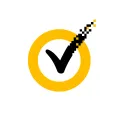Tips for Staying Cyber Safe in 2020
As you move into 2020, these additional tips below can help keep you Cyber Safe, so you can worry less and have more to look forward to this year.
You may have seen headlines recently about how you shouldn’t shorten the year 2020 when signing things. Scammers can easily change the abbreviated date, for example from “1/30/20” to “1/30/2015”. Yikes! Make sure to write out the full year so that there is no mistake on when you signed the document.
1. New device for the holidays? Safely dispose of your old one.
Keep your personal information private and help protect the environment. To wipe your old device clean, first back up your documents, pictures and other important data. Then, follow the manufacturer’s instructions to wipe the device clean of any of your personal information. Consider recycling your device if it won’t be used anymore.
2. While traveling or on the go, bring your own charging cable
Avoid borrowing someone’s charging cable or using public USB charging stations. Cybercriminals have figured out how to implant malware into charging cables and how to hack into USB charging stations in shopping malls and airports. Be sure to bring your own charging cable and power adapter.
3. Use a Virtual Private Network (VPN) if you connect to public Wi-Fi
Public Wi-Fi networks may be convenient to use, but hackers may be able to view your online activity while you’re browsing on these unsecured networks. This information can be used to hijack your personal accounts or steal sensitive information. A VPN, like the one in our newest Norton 360 plans, creates a secure tunnel for your data when connected to public Wi-Fi.
4. Do not provide your Social Security number on doctors’ forms
Having Social Security numbers (SSN) at a doctor’s office or a hospital is a data breach risk. With the exception of the VA, medical service providers do not normally need your SSN. They ask for it is in case they need to send your account to a collection agency or the IRS. Ask the receptionist why this information is needed. If the doctor’s office needs a way to get a hold of you for billing inquiries, offer to provide your cell phone number.
5. Do not fall prey to phone scammers
The IRS, the FTC, and the Social Security offices will never call you asking for personal information. Companies like NortonLifeLock or Microsoft will not call telling you that they detected a virus on your computer. If a bank, credit card company or loan officer calls unexpectedly, do not give them your information right away. Look up the institution’s customer service number and speak to an official agent directly and ask for clarification.
Editorial note: Our articles provide educational information for you. NortonLifeLock offerings may not cover or protect against every type of crime, fraud, or threat we write about. Our goal is to increase awareness about cyber safety. Please review complete Terms during enrollment or setup. Remember that no one can prevent all identity theft or cybercrime, and that LifeLock does not monitor all transactions at all businesses.







We encourage you to share your thoughts on your favorite social platform.